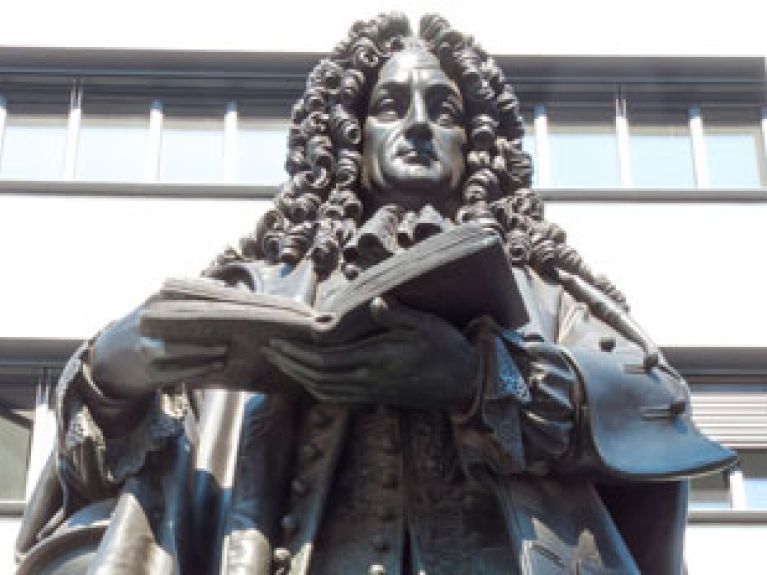The polymath Gottfried Wilhelm Leibniz
14 November 2016 mark the 300th anniversary of the death of the polymath Gottfried Wilhelm Leibniz.

He was a mathematician, philosopher, lawyer, historian, engineer and diplomat. There is just one thing that Gottfried Wilhelm Leibniz certainly was not: a pure theoretician. Born in Leipzig in 1646, his guiding philosophy was to combine science and practice, always viewing his theoretical ideas also from an applied perspective.
This began when 21-year-old Leibniz, who had a PhD in law, turned down the offer of a professorship in favour of a position as a royal counsellor in Mainz. From there his career took him to Paris as a diplomat, where he built a calculating machine according to the latest scientific knowledge – a practical apparatus with mechanisms to perform addition, subtraction, multiplication and division. Based on his findings, Leibniz developed differential and integral calculus.

Windmills, widows’ fund and the binary number system
After having returned to Germany to become Duke Johann Friedrich of Hanover‘s court counsellor and librarian, he set about tackling a very practical problem: from 1680 to 1685, Leibniz attempted to use windmills to drain mines in the Harz region, thereby securing vital silver production for the Duchy of Hanover. Ultimately, his undertaking failed due to resistance he faced from tradition-conscious miners.
Whether he was subsequently to be found travelling through Europe undertaking historical studies of the House of Welf, devising a theory of physical forces that he termed “dynamics” or pursuing linguistic studies – this man who had a command of several languages said of himself: “Upon waking I already had so many ideas that the day was not long enough to write them all down.” Among other things, he had plans for an underwater boat, invented the binary number system, established a fund for widows and orphans and improved the way door locks worked.
He influenced leading future Enlightenment, classicist and idealist thinkers. One central tenet of a Leibniz thesis he wrote in 1678 is that humans can only be happy if their fellow humans are happy. This did not apply to the happiness of Isaac Newton, however, with whom Leibniz argued passionately in the last years of his life about the invention of integral calculus. Leibniz died in Hanover in 1716. The name Leibniz is still to be found in many places throughout Germany. Among other things, the polymath gave his name to the Leibniz Association.

